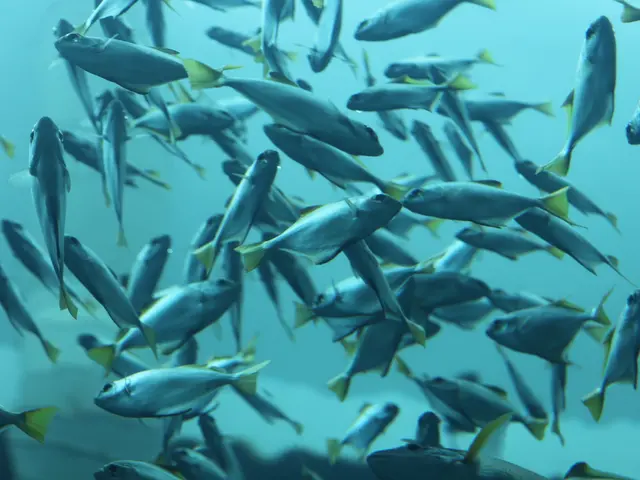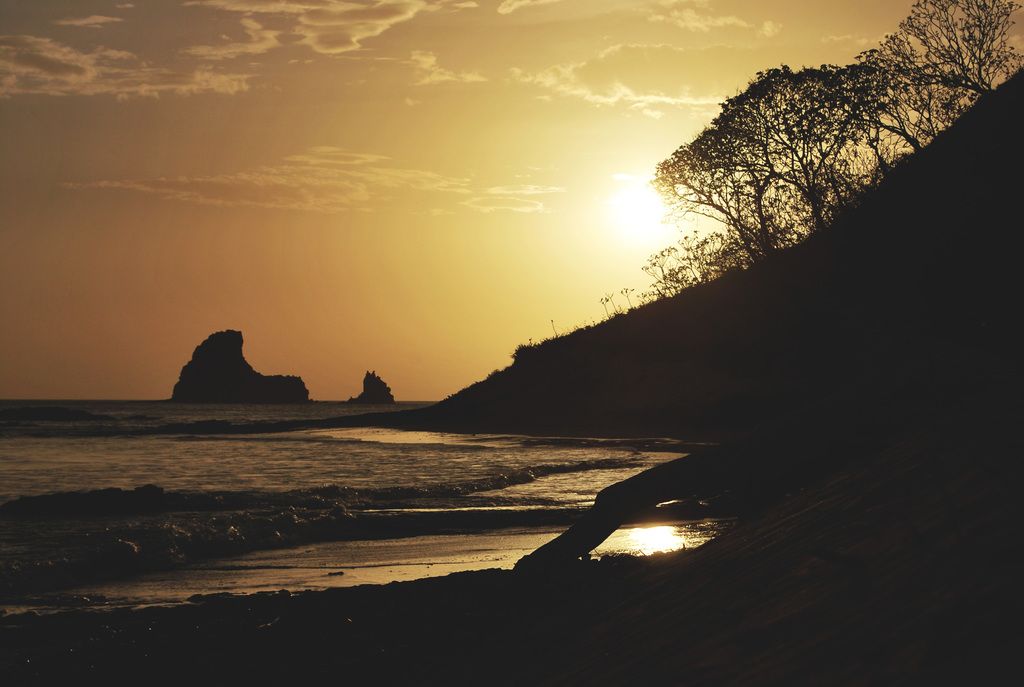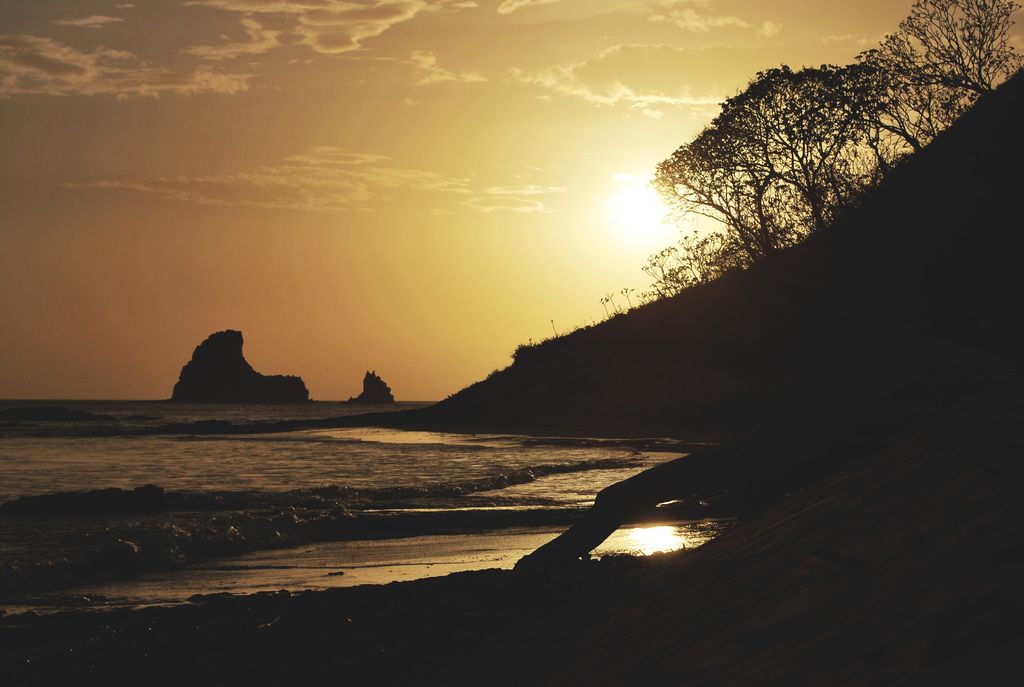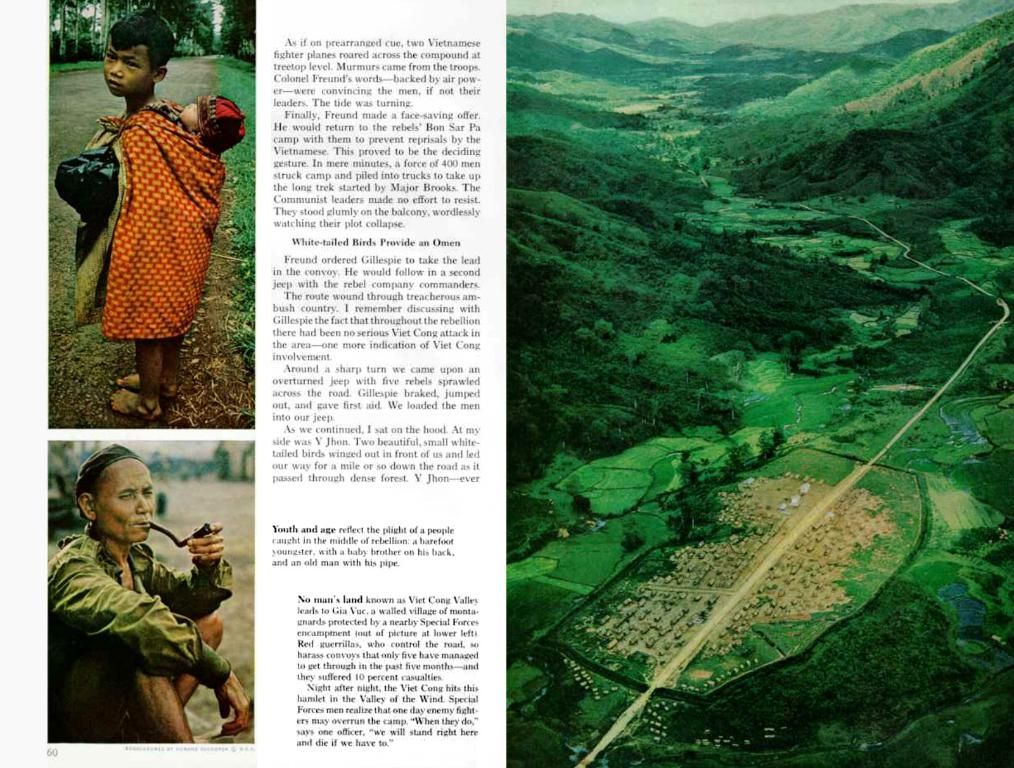Two isolated Caribbean islands reveal previously unidentified crocodile species.
Let's Talk Crocs and Dolphins, Google Style
Hear ye, hear ye! Two fascinating tales from the maze of Nature, both needing a helping hand.
First off, take a dive in the sun-soaked waters off the coast of Mexico's Yucatan Peninsula, where two unique species of crocodiles, each numbering around 500 soulful reptiles, call home: Cozumel and Banco Chinchorro. Sadly, these scaly wonders reside on the brink of extinction, thanks to urbanization, pollution, and rowdy tourist vibes.
Researchers have taken a closer look at these critters, conducting genetic analyses that paint a picture of significant differences between our little croc friends from island and atoll homes. To put a finer point on it, Banco Chinchorro crocodiles sport longer, wider schnozzes compared to their Cozumel counterparts, according to a recent study published in the Molecular Phylogenetics and Evolution journal.
Now, how about a leap elsewhere across the world's vast oceans, where our favorite tech giant, Google, is making some splashy moves. Google been working with the Georgia Institute of Technology and the Wild Dolphin Project on a groundbreaking venture called DolphinGemma. This ambitious project seeks to crack the code on dolphin communication - yes, dolphins! Imagine, one day we'll be chatting with those charismatic marine mammals like old pals.
While these dolphin convo crackers and the Cozumel-Banco Chinchorro croc conservation struggles may seem unrelated, they each play a vital role in understanding the web of life in our beautiful, ever-evolving world. So, let's keep our eyes and ears open to progress in these areas, and perhaps inspire the next generation to care, learn, and act in conservation efforts.
As for Google, they're planning to make the DolphinGemma model open-source this summer, taking it out of the lab and into the hands of budding marine mammal enthusiasts like you and me. Bring on the dolphin gab! Stay tuned for more breakthroughs.FACT CHECK: There is no direct connection between Google's DolphinGemma project and the conservation of crocodile species in Cozumel and Banco Chinchorro. While the DolphinGemma project focuses on decoding dolphin language and potentially leading to better understanding and interaction with marine mammals, it does not involve crocodile species or their conservation efforts. Conservation initiatives for crocodiles in these regions would likely involve different scientific and conservation organizations focused on reptile conservation rather than marine mammal communication.
- I find the genetic differences found in Cozumel and Banco Chinchorro crocodiles, as detailed in the Molecular Phylogenetics and Evolution journal, fascinating.
- In light of Google's work with the Georgia Institute of Technology and the Wild Dolphin Project, I'm excited about the potential to communicate with dolphins using the DolphinGemma project.
- Perhaps one day, as urbanization and other threats lessen, we can share a conversation with the critically endangered Cozumel and Banco Chinchorro crocodiles in the field of health-and-wellness and environmental science.
- As both the Cozumel-Banco Chinchorro crocodile conservation efforts and Google's DolphinGemma project advance, we can apply the knowledge gained to better understand and protect other species, such as those found in the realm of sports and mixed-martial-arts.
- My passion for reptiles, marine mammals, science, and environmental advocacy fuels my dedication to contributing to the advancement of health-and-wellness and sports through both the conservation of endangered species and the exploration of cutting-edge technology.








